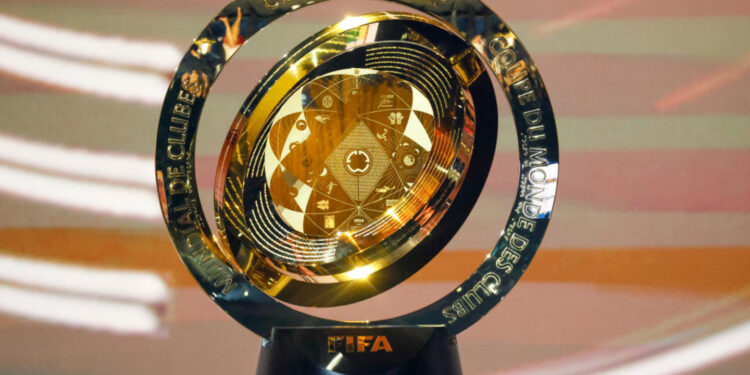By Victor Kanayo
Overall winners of the 2025 FIFA Club World Cup will earn $100 million in prize money, the biggest ever in history.
This was disclosed by FIFA in a statement.
According to organisers, the FIFA Club World Cup 2025 is set to take place in the United States from June to July, featuring 32 teams in a revamped and expanded format.
The tournament will include 12 European clubs, six South American sides, and four each from Africa, Asia, and North/Central America. Oceania has one slot, while the USA secures the final place as the host nation. Inter Miami is controversially tipped for this spot, likely to showcase Lionel Messi on the world stage.
Teams will be divided into four groups of eight, with the top two advancing to a 16-team knockout stage. The tournament will adopt a four-year cycle similar to the FIFA World Cup.
The Club World Cup has historically been dominated by European clubs, who have won the last 11 finals. Real Madrid and Barcelona account for over half of the tournament’s previous champions. FIFA President Gianni Infantino’s vision of a “truly global” football competition faces challenges, as wealth and success remain concentrated among the elite.
This marks a significant evolution from the FIFA Club World Cup’s previous iterations, which were smaller annual winter events, ending in 2005.
FIFA’s bold prize fund dwarfs those of other competitions, including the UEFA Champions League, where Real Madrid earned $89 million for winning the 2023–24 edition.
Notably, UEFA has increased its 2024–25 prize pool to $2.71 billion, perhaps in response to the competition.
In South America, Copa Libertadores champions Botafogo earned $31.34 million in total prize money, including $23 million for their victory in the final—a match labelled by the South American Soccer Confederation as the “best-paid match in the world.”
European teams will be determined by their performance over the past four years in Champions League play. Clubs like Manchester City, Real Madrid, and Chelsea have already qualified as recent winners.
However, AC Milan faces stiff competition from Juventus and Napoli for a spot based on projected rankings.
Still, the competition has had transformative effects for some. DR Congo’s TP Mazembe reinvested their 2010 success into infrastructure and youth development, becoming an African powerhouse. Similarly, Japan’s Kashima Antlers used their 2016 runner-up finish to upgrade facilities and enhance their standing in the J-League.




































